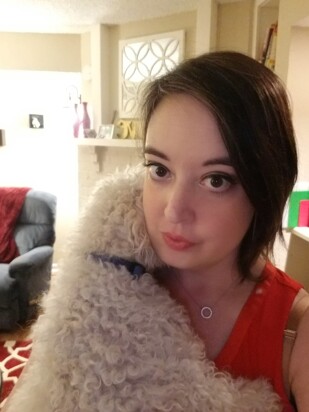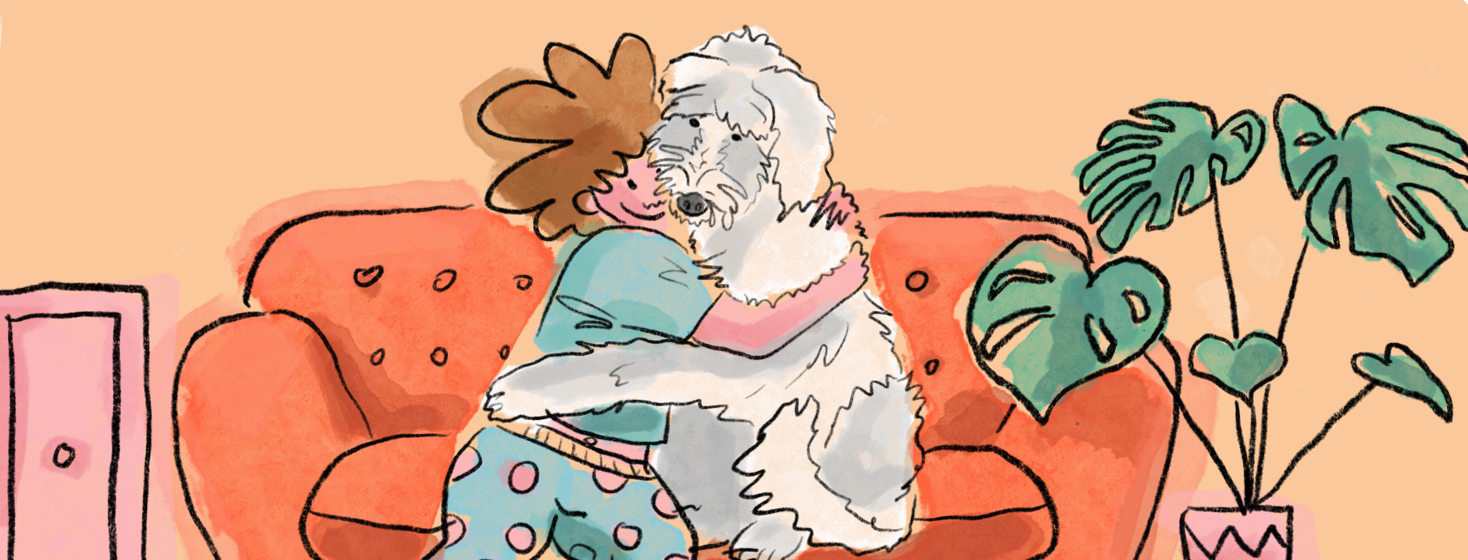How Adopting a Disabled Dog Helped Me Accept My Own Disability
Three years after I was diagnosed with lupus, I was scrolling through emails on my phone during my lunch break when a picture caught my eye. Beneath the logo of an animal shelter, a scrawny white miniature poodle stared up at me from my screen. His eyes were as big and round as marbles. But what caught my attention was his uneven front legs. He was missing his left front paw.
Throughout the rest of the workday, lupus fatigue hijacked my focus. My mind drifted again and again to the picture. The shelter was only one exit off the highway away from my work. It wouldn’t hurt to look at him in person (or is it "in dog?") Just visiting doesn’t mean I’m taking him home, I reasoned.
Finding my shelter dog
Exhaustion tugged at my eyelids by the time I finished with work. Still, I found myself turning out of the parking lot in the direction of the shelter.
 "He’s been adopted a few times, but they keep bringing him back," the volunteer at the shelter told me when I mentioned the dog from the picture. She unlocked the dog’s cage. I picked the dog up gently. His bones jutted out from under his tangled fur. Scars and bald patches crisscrossed his back. The dog twisted his body until he was sitting straight up in my arms, his little chest against mine. Then he wrapped his arms around my neck and rested his head on my shoulder in a doggie hug.
"He’s been adopted a few times, but they keep bringing him back," the volunteer at the shelter told me when I mentioned the dog from the picture. She unlocked the dog’s cage. I picked the dog up gently. His bones jutted out from under his tangled fur. Scars and bald patches crisscrossed his back. The dog twisted his body until he was sitting straight up in my arms, his little chest against mine. Then he wrapped his arms around my neck and rested his head on my shoulder in a doggie hug.
I chatted with the shelter volunteer as I stalled for time. The dog hugged me the entire time as if he were drowning and I was a life vest. Every time I considered returning him to his cage, my arms refused to move.
"I’ll take him," I finally said to the volunteer. She smiled as if she had known all along.
My dog helped me accept my lupus
The dog had never walked on a leash before but embraced walks with the same enthusiasm he reserved for hugging. Because of his limp, his head bobbed up and down as he trotted down the sidewalk. This made his ears flap as if he were trying to fly. I thought of Wilbur Wright, one of the inventors of the airplane. The name Wilbur stuck.
After a few days, it became clear that Wilbur’s trauma ran much deeper than the missing paw or the scars on his back. He cried when I left the house, then stared at the door for hours until I returned. He followed me to every room, even whimpering and scratching the paint off the door when I was in the bathroom. When I took him outside to potty-train him, he sat on my foot and refused to move – then immediately peed on the couch when I brought him back in.
In many ways, Wilbur’s trauma mirrored mine. Lupus had entered my life like a tornado, whisking me away from my carefully planned life path and dumping me into a world as foreign as Oz. Before lupus, I had once fit grocery shopping, cooking, work, and time with friends into a single day. After lupus, I struggled to even get out of bed. But the most traumatic part of developing a chronic illness was not the crushing fatigue or the joint pain. It was the hurtful reactions of the people around me. It was the dismissive shrug of my doctor when I told her I was so exhausted I was hallucinating. It was the roommate who grew annoyed and resentful when I couldn’t keep up with the housework. It was my mother walking away from me when I needed to rest in the middle of a shopping trip.
It would be years before I began to identify myself as disabled. That first time Wilbur hugged me, I wasn’t able to put into words why I needed so badly to bring him home. Now I can. I realize now I was tired of being the only disabled person I knew. I needed someone in my life who understood, even if that someone was a dog.
Seven years after that day at the shelter and countless hugs later, the searing burn of my diagnosis has faded to a scar. Where fear of others’ reactions once silenced me, I now speak and write openly about my illness. I’ve realized I can still live a full life, even if a lot of it is spent in bed. Wilbur now curls up on a blanket to nap instead of crying when I leave the house. Even my couch has recovered. Eleven years after my diagnosis, feelings of depression and self-doubt still occasionally creep into my life. Fortunately, I know just who to turn to for an understanding hug.

Join the conversation